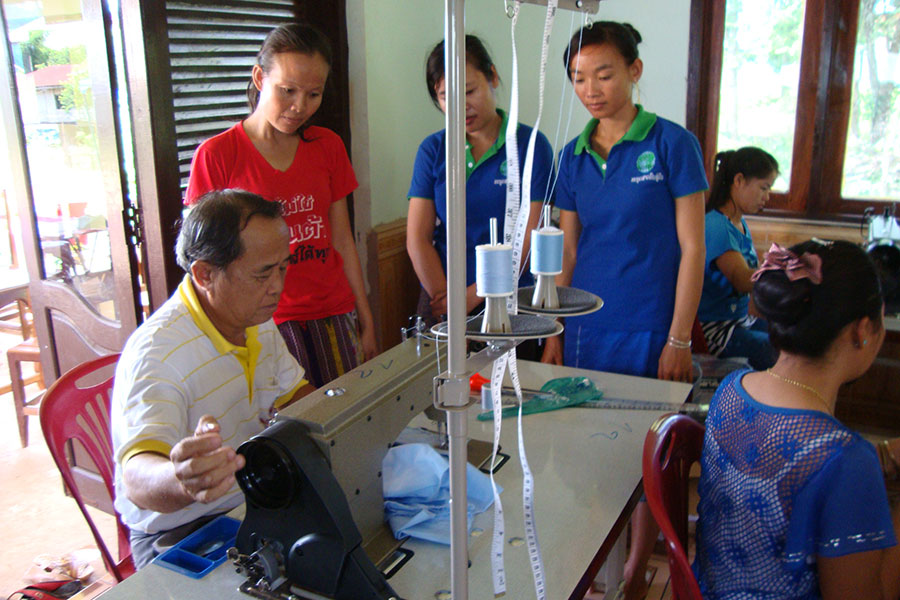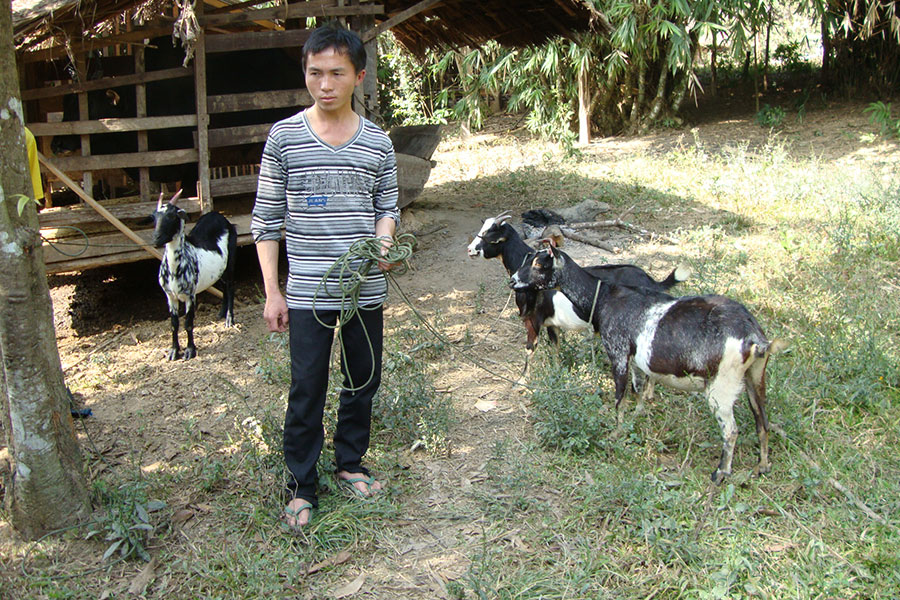Child Aid | Income generation
“Working together, supporting each other - we can earn good money on new production”
HPP Laos regards promotion of income generating activities as an important part of its programmes. Even a small extra income can make a difference when saved up for covering school fees or unforeseen expenses caused by illnesses or natural disasters. As families become more skilled and experienced in cash generating activities, some will use their savings to invest in extending their production, and thus set themselves up to further increase their communities' wellbeing.
It is not easy for a family with limited resources to start a micro business and to earn an income from it. Knowledge and courage are needed. The Child Aid projects have thus encouraged families to take up one of several income generating activities, for instance to increase production of vegetables above their subsistence needs, or to raise ducks, rabbits, fish, frogs and goats for sale. Participants have received practical and theoretical training, and HPP Laos Project Leaders established Village Action Groups for people to better support each other and to share their experience and learnings.
The achievements
- A group of women received sewing machines, were trained in sewing techniques and established their own micro businesses in the community.
- Families were trained in commercial animal husbandry. Some of them who participated in the goat pass-on project, received goats and training on how to look after them for income generation and improved nutrition. To multiply and share the benefits of this project, participants passed on the first weaned kids of their goats to other families who in turn could start up their own goat production. In this way, villagers managed to double the number of participating families within the first year, and triple it within the first two years.
- In terms of cash crops, families obtained the capacity to grow a variety of crops on a small-scale, such as mushrooms, rattan, mango, papaya, moringa, pineapple, cassava, among others.
- The families sell their home-produced meats and crops at local markets, thereby contributing to a more varied offer of food for their own and neighbouring communities.
- To complement their micro business activities, all participating families were trained in financial literacy and numeracy. They learnt how to make a budget and how to track their cashflow, how to bargain more effectively for cheaper prices from suppliers, and how to get access to markets.





